The first question I get asked when I tell someone that I’m vegan is the same one 99% of the time. Where do you get your protein? Isn’t it hard to get protein? What do you do for protein? Protein, protein, PROTEIN. Yes, it is important to meet certain requirements of this nutrient, but it is not as hard to get as people make it out to be.
Think for a minute. Where do you think a cow or pig, and other animals (think gorillas and rhinos!) get their protein, which humans then consume? If you didn’t already know, these listed species are herbivores, so they don’t eat any meat, or any animal secretions such as milk from species other than their own (i.e. humans drinking cow’s milk). Humans are designed just like these particular animals in that our instincts do not allow us to rip apart flesh with our bare hands and teeth like carnivorous animals, like lions. These species are also capable of eating the meat raw, whereas we cannot.
Contrary to popular belief, you literally have to try hard to be protein-deficient on a vegan diet. Almost all plant foods contain some proportion of the micronutrient, even fruits like bananas, figs, and watermelon (yep, watermelon). Just in case you’re still worried, I compiled a short list of especially protein dense vegan foods to try and end the vegan protein-deficiency bias and to give people who are transitioning to veganism yummy and nutritious ideas.
1. Beans and Lentils
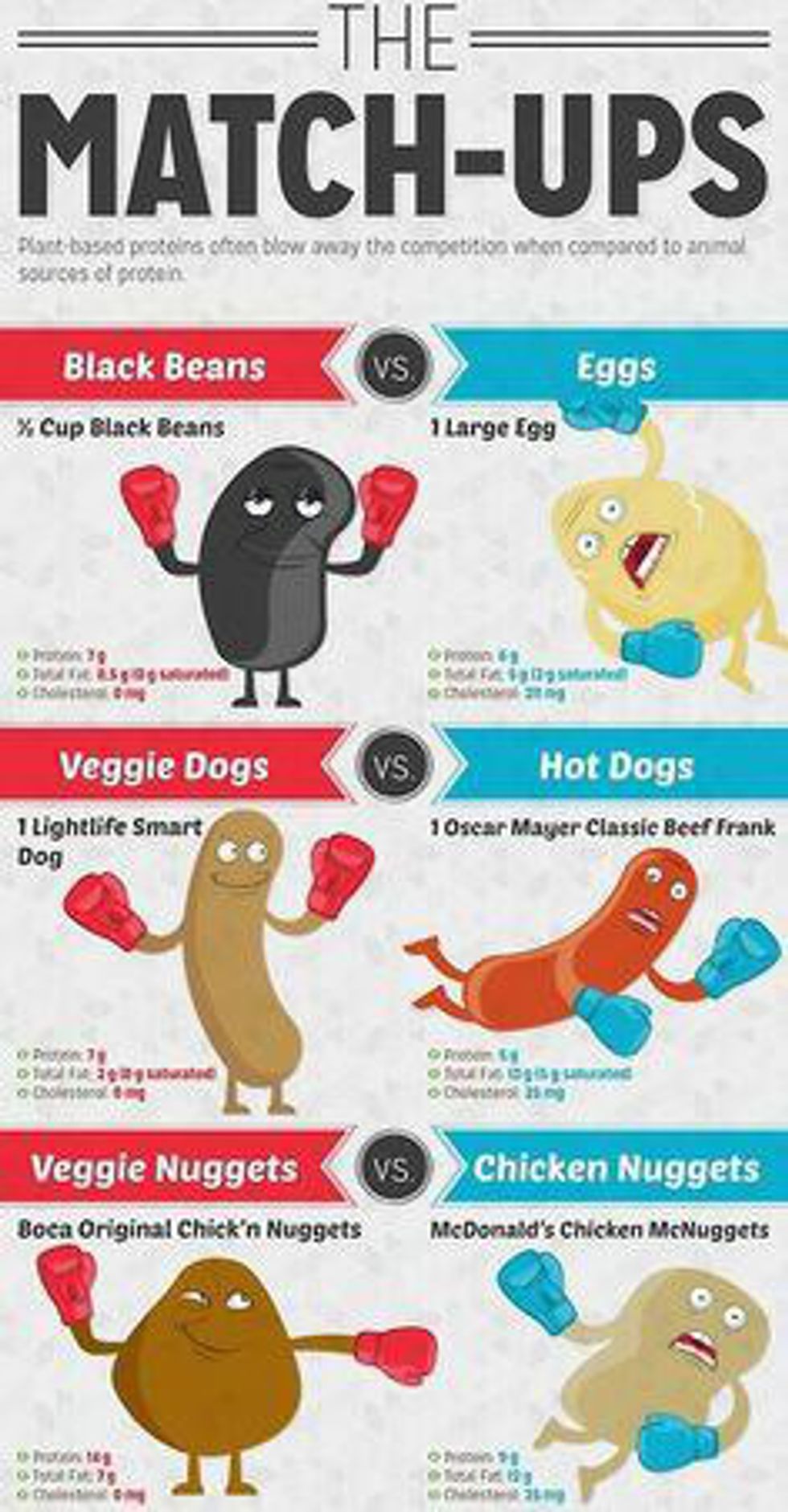
You might already know that beans and lentils are a protein powerhouse, but just how good are they? Black beans get 25% of their calories from protein, while in beef, protein is only 20% of the calories. Beef also contains almost twice as many calories for the same weight of food, while also being packed with cholesterol and saturated fats, not to mention completely lacking in fiber, which is essential for our bodies to function (lentils contain a whopping 16 grams per 1 cup). As if you needed another reason, a typical can of beans can cost less than one dollar, while beef costs four to five times as much.
Try these recipes that contain lentils and/or beans to bump up the protein, or just experiment with your own!
Specific examples: Beans (black, pinto, kidney, navy, fava, chickpeas), legumes (lentils, peas, peanuts) plus so many more!
2. Whole grains
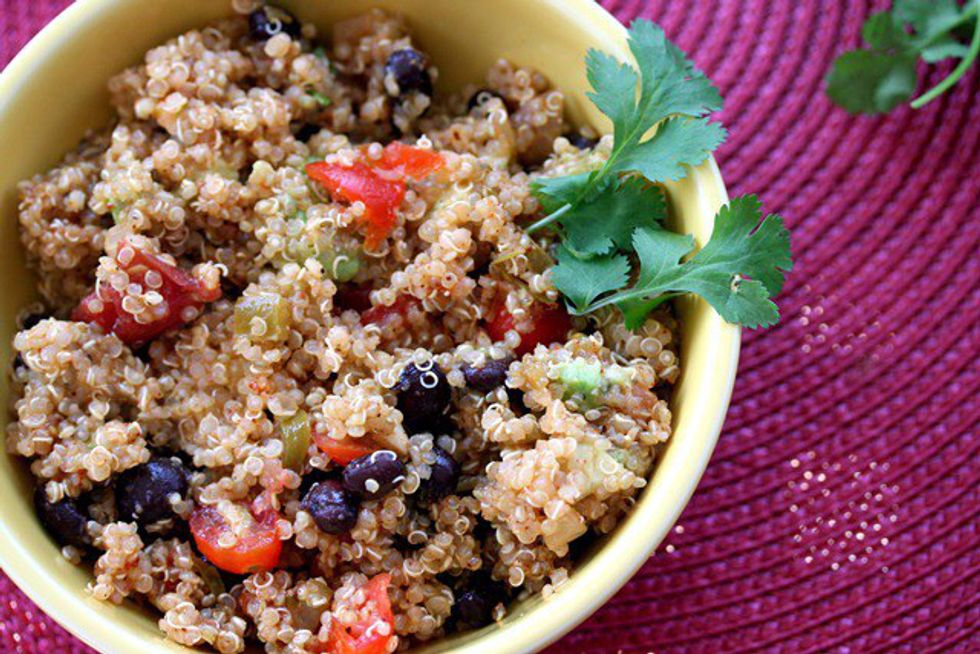
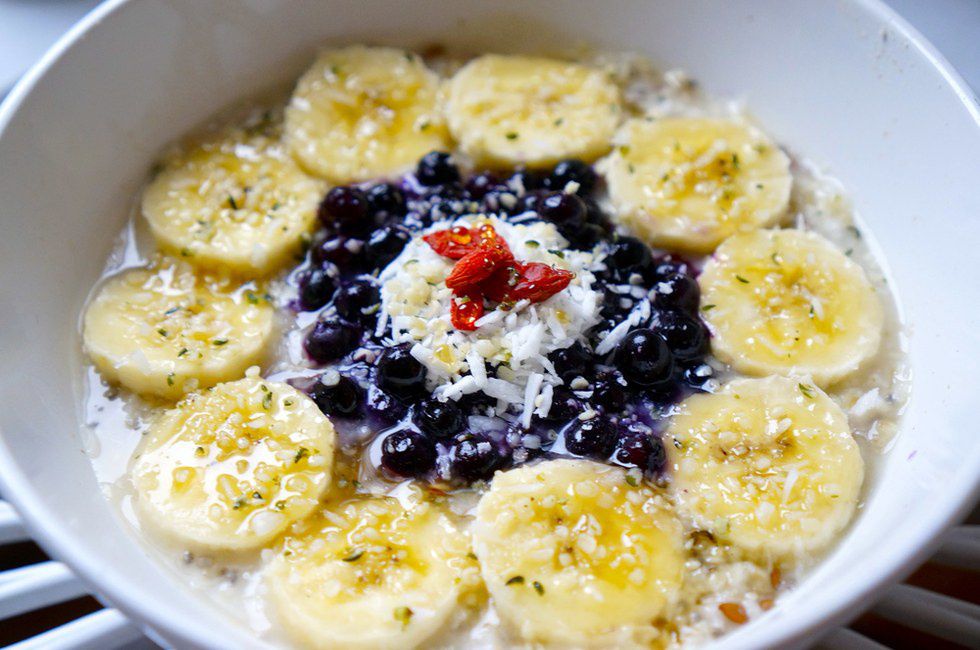
Many people actually don’t know that many whole grains are an excellent protein powerhouse! Not to mention they’re also super simple to implement into your diet. If you want to up your protein, just substitute regular white bread to whole wheat, or buy wild rice instead of white rice. Other great sources are oats, quinoa, and barley. Many of these are very inexpensive and finding something you like is easy.
Start your day with these phenomenal oatmeal recipes or opt for quinoa with these amazing ideas!
3. Nuts and seeds
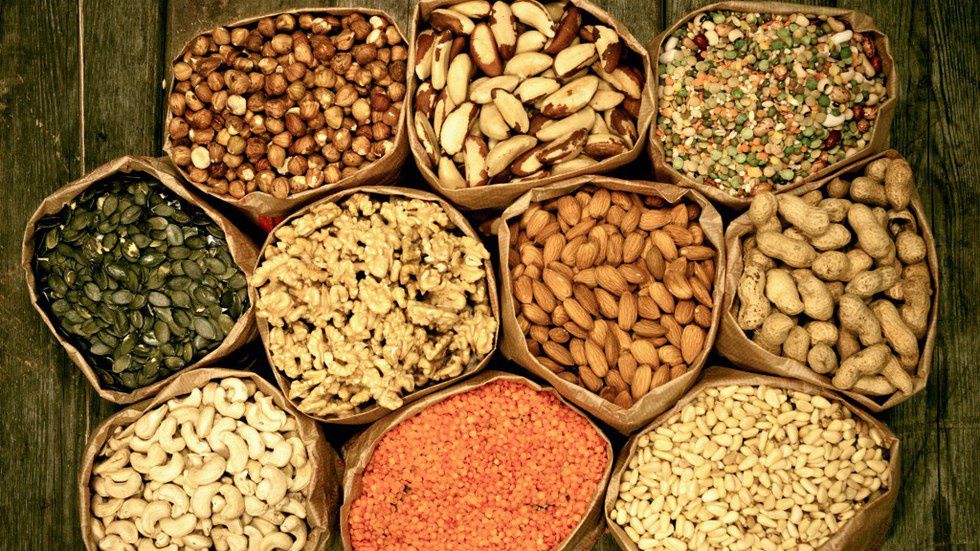
Nuts and seeds are probably one of the most protein dense plant foods to exist. Just 100 grams of pumpkin seeds contain 24 grams of protein! Adding more of these foods to your diet is super simple. Sprinkle seeds or put nut butters into your oats or smoothies, put nuts into vegan baked goods, or simply munch on a handful of them as a yummy snack. Nuts and seeds are also an excellent source of healthy monounsaturated fats, unlike the detrimental saturated fats found in meat and dairy.
Try: Almonds, macadamia nuts, pecans, walnuts, chia seeds, sesame seeds (and tahini!), pumpkin seeds, flax seeds, pistachios, and cashews.
4. Tofu, tempeh, seitan
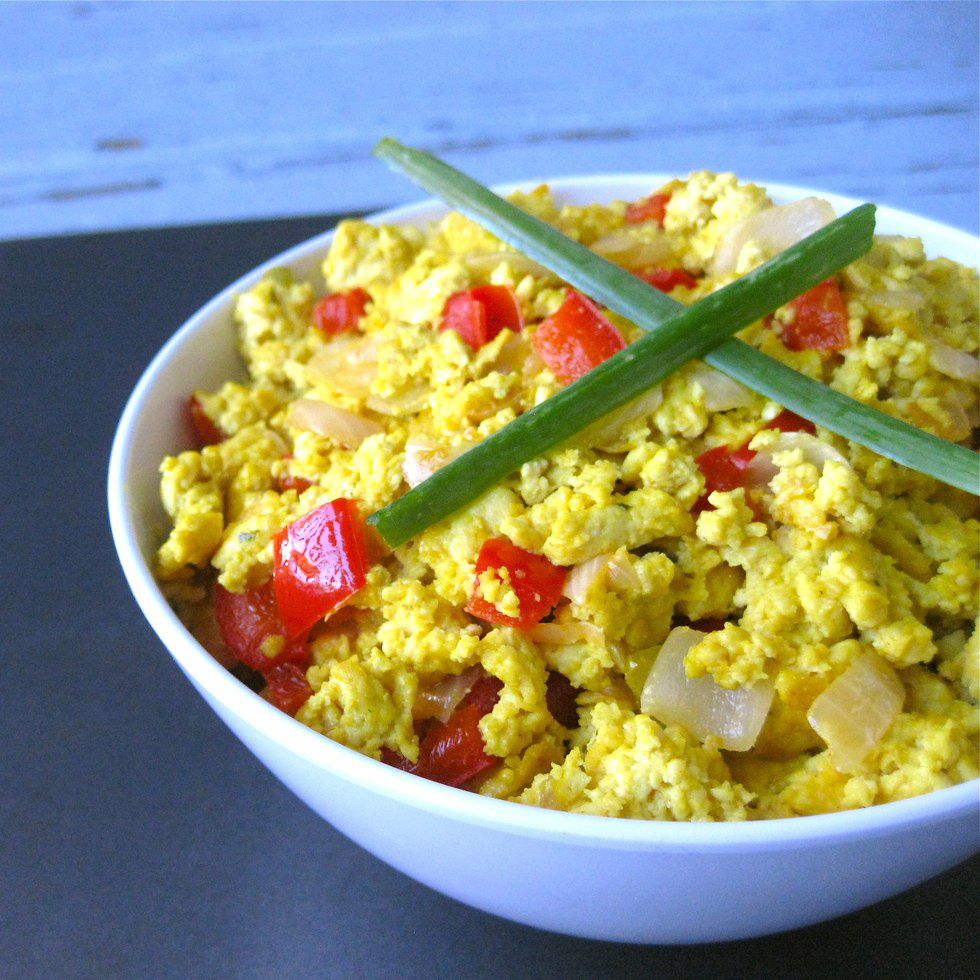
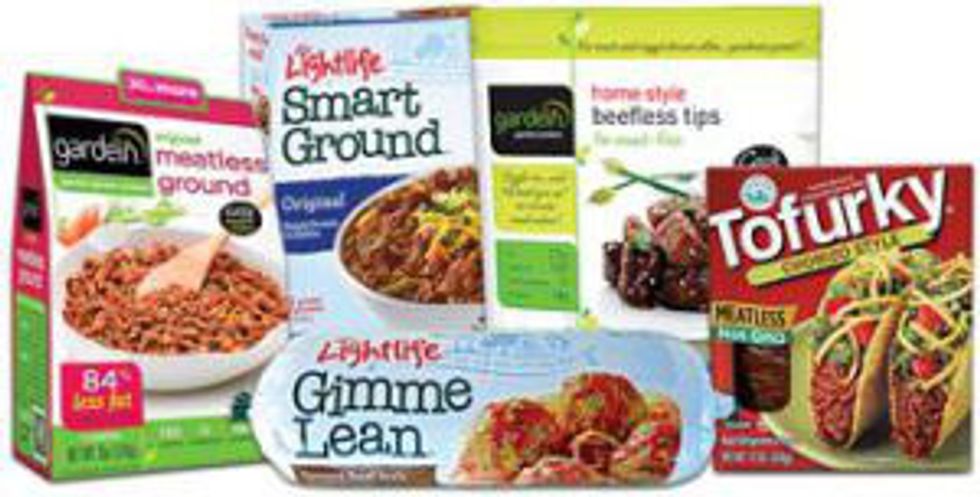
So you’ve probably heard of tofu, which is made from soybeans, but wtf are tempeh and seitan? Tempeh is actually also made from soybeans, but it is actually a little healthier in that it has more protein and fiber. It’s a little more firm, but a great substitute wherever you would use meat. Seitan is the protein derived from wheat, used in many plant-based meat products to achieve the proper texture. If you’re transitioning to veganism, buying products like these can really help you enjoy similar foods to meat without the cruelty and unhealthiness. Try these yummy vegan meats that are not only delicious, but also packed with protein and easy to incorporate into recipes like burgers, tacos, burritos, or sandwiches. Or, toss a handful of tofu into a healthy miso soup and swap out your scrambled eggs for this amazing tofu scramble.
5. Leafy greens and other veggies

You already know that veggies like spinach and broccoli are good for you, but did you know that they also pack a punch of protein? Mushrooms are 38% protein, cauliflower is 40%, and spinach is at a whopping 49%. Besides being a good protein source, these veggies contain fiber, plus plenty of other essential nutrients that are sure to boost your health. Feeling creative? Add some spirulina powder to your smoothies, which contains an impressive 4 grams of protein in just one tablespoon!
If you want to up your protein further, especially is you’re working out daily and want to build muscle, there are plenty of plant-based protein powders (try these!) that you can add to you’re pre and post-workout smoothies. No whey!
Next time someone asks you where you get your protein, feel free to reply with “the same place most animals get it from, plants!”




















